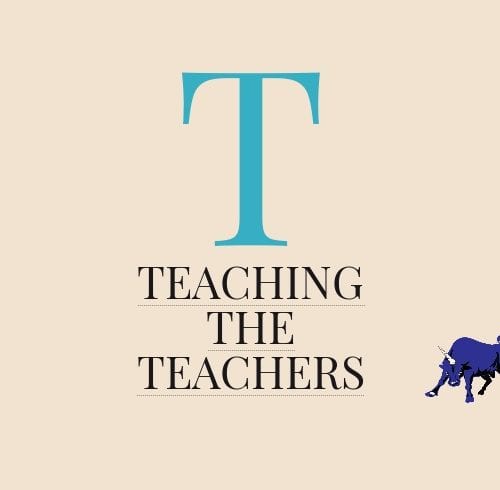This post was originally published in 2013.
I finally read Lean In. Having read many articles debating the book’s principles, I felt that I knew what to expect.
What I did not expect was how much of the book was about pregnancy. Sheryl Sandberg had really difficult pregnancies. At one point, she had gained 70 pounds and was constantly vomiting into the office toilet.
While working at Google, she marched into the offices of Larry Page and Sergey Brin and demanded the establishment of expectant mother parking. Brin immediately agreed; he’d just never thought of it before. Sandberg’s conclusion is that, if more women are in positions of power, there will be women around to think of these things. Sure, sort of, sometimes. I have limited belief in the efficacy of trickle-down feminism.
(For an incisive feminist analysis of Lean In from an absolute living legend, please see bell hooks‘ Dig Deep: Beyond Lean In.)
But my shrugging approval of the pregnancy parking situation was greatly overwhelmed by the thought, “OMG, if I’m throwing up multiple times a day, I sure as hell don’t want it to be in a public bathroom.” This is the picture of success?
But that’s just me. I live on Wall Street, and every time I go get coffee at 10:45 or lunch at 2:30, or use the gym from 3-4, I think about how I’m pretty sure I “have it all,” in the sense that I’m enjoying the Art Deco skyscrapers (my gym used to be an art deco bank!) and the old Dutch buildings while other people are spending all the good daylight hours sitting in a cubicle.
(See also Bullish Life: Achieve Goals and Glory by Recreating Like a Total Fucking Badass.)
It seems clear that I have an obsession with – or, more nicely put, a commitment to – my own physical freedom. You may not share this. But you obviously have your own requirements and priorities.
What’s Really Important in Choosing – or Designing – a Career
The more years I’ve been working, the more I think that whether you are willing to do your throwing-up into Google headquarters’ toilets, whether you are able to drink scotch at 2pm (well, not if you’re pregnant), whether you get to look at (or even touch!) trees when the pressure of living in a world of ultimately meaningless intangibles is just too much, and whether you have to fight a bunch of assholes just to get your job done are all probably more important to one’s career happiness than what kind of actual job you actually do.
That is, for a lot of people, the form of the work outweighs the content of the work.
Even if you have a strong commitment to a cause, it’s not clear that making that cause your job is the best move. You can promote education or fight domestic violence by making a lot of money and donating it to the right organizations. (See Bullish: How to Run Your Career Like a Gentlewoman.) If you don’t have the personality to (wo)man the phones at a domestic violence shelter, dear god, leave that to someone else. Lots of women who work in the marketing departments of companies that sell very fancy handbags also organize actually quite effective domestic violence fundraising galas in their spare time. A person’s overall effect on the world may be more important than the content of her profession.
In fact, here is a list of considerations that, depending on your personality, may be equally important to or more important than the content of the work you choose:
• Where do you have to do the work? (In an office, at a desk? At home? Outdoors? Standing? Sitting?)
• Where do you have to live to best do the work? (In a big city? Near a certain industry?)
• Will you have to do the work at certain times?
• Can you live the life you want if you have to be in a specific place every weekday for many years?
• How much will you be involved in office politics (or, if you like that sort of thing, “office social life”)?
• How much will a boss be looking over your shoulder?
• How much will you be expected to conform to the precise requirements of others?
• What does the job pay?
• How much do you need a lot of money to live the life you want?
• How stressful is the work?
• How well do you deal with stress?
• How risky is this type of work as a career choice?
• How comfortable are you with risk?
• Is the job likely to change a lot?
• Do you get bored fast or do you fear change?
• Will you have to “stay strong” every day just to keep going?
• Will others respect you / think you’re brilliant / be awed or intimidated by you?
• Or will people regularly be rude to you even though you’re trying to help them?
• How much do you care how others treat you?
Do the Things You Love Really Make for a Job You’ll Love?
I think about these questions a lot, since it makes me surprisingly happy to help people beat the GMAT and GRE. (As I discussed a bit here.)
It’s not like I think standardized tests are the most important thing ever. Most of my close friends and ex-boyfriends have been people who naturally did pretty well on those tests but didn’t give them much thought. No one likes a thirty-year-old who’s still bragging about his SAT score. Most of us have moved on.
But plenty of really smart people are held back by these tests, and plenty of future PhDs are hampered by what I think of as math terror. I am really good at alleviating math terror. Especially in rooms of mostly-female students.
I never could have foreseen this had I decided to “do what I love.” After all, what do I love? Wine? Justice? Maybe I’d like being a sommelier, although I doubt that helping people pick a wine would give me as much satisfaction as helping someone get into grad school. I mean, people can just drink the wine that comes in the prettiest bottle or something and it’ll mostly turn out fine. And I definitely wouldn’t like being a cop, or even a judge, for a lot of procedural and bureaucratic reasons.
I also love smart, dark, fast, nerdy humor, and in fact spent some years as a standup comedian, but it turns out I hate comedy clubs (again, they tell you where to sit), I hate hearing racist and sexist jokes from other comics and then being told to “toughen up” if I have ethical objections, and I hate trying to convince people to attend shows when they’d really rather stay home.
I’m not sure that what I love translates into loving a job about what I love.
What I really love about my actual, complicated career is harder to articulate. Running my own ship. Physical freedom. Being able to work at least some of the time from a cafe in Argentina. Being an introvert and having that work out really well, thus demonstrating to everyone that loud people aren’t inherently better. Reserving the right to shave any part of my head at any time. Freedom to fire clients who are disrespectful or unethical. Not having to convince people they want things they don’t really want. Being able to pursue new projects without needing someone’s permission.
We also live in a world in which most of us have jobs that are part of larger, complicated systems. Few of us grow food or construct physical objects. As such, it’s hard to imagine how a job will play out once you’re in it. Many of us are profoundly divorced from the end product of our labors.
Making Sure to Ask the Right Questions
Daniel Gilbert in Stumbling on Happiness (also quoted here and here) writes that everyone thinks they’re much more unique than they really are, and also that everyone is bad at predicting what kinds of things they will like in the future. The conclusion? If you want to know whether you’ll like being a lawyer, you would get a better answer by asking some lawyers how they like their jobs than by trying to imagine yourself as a future lawyer. That is, certain other people in the present are more like you in the future than you now are like you in the future.
(See also Bullish Life: Some Dreams are Stupid and Bullish: Are You Thinking Too Small?)
“Tiger Mom” Amy Chua famously wrote in the WSJ (also quoted in Bullish: What I Learned About Success in a Korean Cram School), “What Chinese parents understand is that nothing is fun until you’re good at it.”
This, of course, is not entirely true. Otherwise teenagers wouldn’t enjoy making sex so much.
But it’s yet another contributing reason why “doing what you love” may not be the best idea. I stumbled across an article on AskMen called The End of Seniority, and was interested to read that, even for the top – male – freelance writers, pay is stagnant and respect doesn’t translate into money. The piece is a bit dispiriting, but some of the writers interviewed end up finding joy in the non-writing aspects of their work:
Daulerio slipped into the editor/manager role almost by accident. “It wasn’t a conscious decision at first. It was more that I had to switch how I thought when I inherited Deadspin [from Leitch]… As popular as it was as a site, it was a cult thing. The numbers just weren’t there,” he says. “I had to switch my mode, to start thinking about stats, staffing, and budgets. All the stuff that wasn’t great fun, but for whatever reason, I just loved that. The strategy behind it was something that I grew to love more and more.”
Choire Sicha, whose resume includes stints at Gawker, The New York Observer, and The Awl, which he founded and currently runs with Alex Balk, also found that, to his surprise, he liked the business aspects of, well, the business. “I failed algebra in high school and had to take it in summer school, but it’s not because I’m stupid or even that bad at math; it’s because I didn’t think serious things applied to me,” he told me via IM. “Now I do math every day! And I love it. It turns out that I kind of love Excel!”
There’s something to be said for doing what you love, but any job consists of the actual work, the management structure you have to do it under, the deadlines, the work volume, the physical environment, the professional respect or lack thereof, and of course the compensation.
The “actual work” part may be totally overwhelmed by the other parts. If you can only prioritize a couple of these things, it’s completely reasonable to subordinate the “actual work” to the conditions under which the work must be done.
Obviously, some people just go for whatever pays most, but plenty of other people also decide, for instance, that the most important thing is to work outdoors with cool people. All valid choices.
It’s Sheryl Sandberg’s mission to convince more women to “lean in” to the corporate workplace. But before you lean all the way into anything, there are a lot more questions to ask than what your job title will be.









